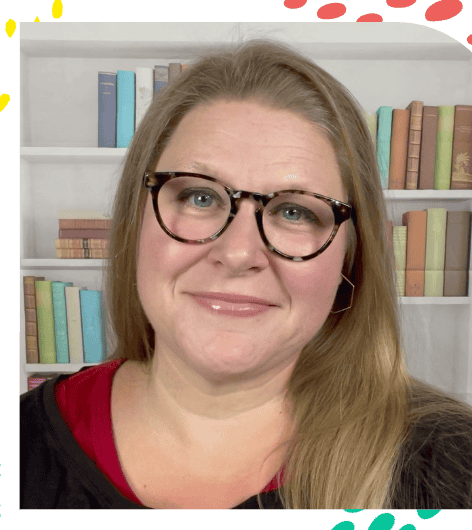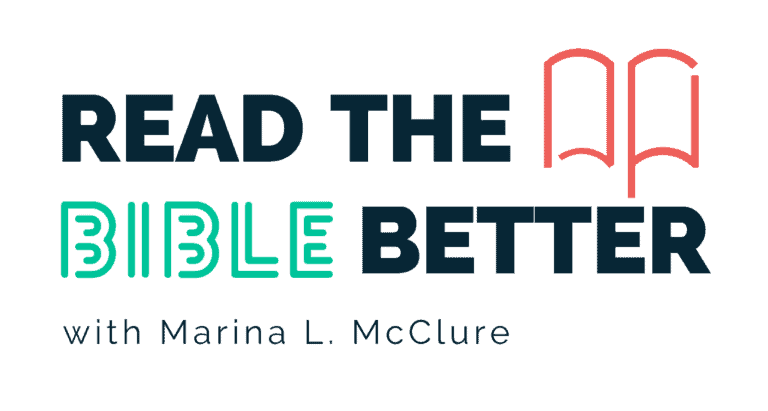About Marina
TL;DR version: Passionate Bible nerd (in a cool way), regular human person with degrees in literature & psychology, friend to my loving husband, frequently-laughing and frequently-humbled mom to 3 school-age kids. Deeply committed to loving all of my neighbors. Always earnest. Prone to expressive gesticulation. Still says “dude.” she/her
If you’d like to know more, keep reading.
These days, the term “Christian” doesn’t seem to clarify much about how a person lives their life, what their values are, or what they prioritize. So, to clarify those things, here are some bullet points about me and what it means for me to be a Christian:
- Jesus was radically inclusive. And that’s pretty much the whole reason I aim to be radically inclusive too. Not just on the surface, not just in church environments, but all the time everywhere. I will keep learning how to better stand in authentic solidarity, side-by-side with the outcasts for as long as I live. That’s what loving people looks like.
- Every human is my neighbor. The story of the Good Samaritan makes that abundantly clear (especially understood in its historical and social context!). My job as a Christian and follower of Jesus is to actively seek and work toward the wholeness and thriving of my neighbors. All of them. Period. It’s holy and redemptive work – even when its painful – and the more I engage in it, the clearer God’s beautiful kingdom becomes within and before me. I’m grateful to be a part of a wonderfully imperfect ragamuffin little church community that teaches me more and more what it means to live out this truth.
- Sometimes, I post political things. Not because my aim is to be a part of a political discourse per se, but because those two bullet points above make living as a Christian inherently political. Jesus’ ministry (and death) were explicitly political. To avoid the political is to live in a privileged position distanced from the world around you, and, by extension, distanced from the example of Jesus. If you’d like to hear me say more things like this, follow me on Threads.
- The Sermon on the Mount (Matthew 5-7) is a key part of reading and understanding the Bible. All else needs to be read through lens of the Sermon on the Mount and the Gospels. This means that the rest of the Bible must be understood for today’s Christians through the lens of Jesus. If what you think you are reading in Paul doesn’t tally with Jesus, you can be sure you’ve misunderstood Paul (don’t feel bad; misunderstanding Paul is kinda the norm). If you want to learn more about the Sermon on the Mount, you need to check out my in-depth Bible study on the Book of Matthew.
- Churches should be places of formation and community. Yet many of them leave their people with wounds and trauma. There are many reasons for this reality, and I lived some of them first hand. My work advocating against Spiritual Abuse is deeply personal and vitally important for the health of Christianity today. You can read more about my experiences with a harmful church elsewhere on my website.
- I don’t have a seminary degree, although I do have some seminary-level learning under my belt. I also have degrees in English literature and Psychology. I’ve found that my own approach to studying the Bible is built on the foundations of literary techniques and study methods. While the Bible isn’t just any old book, it is still a book. And though it may be inspired by the hand of God, it was also written by the hands of men. A “literary approach” can mean a lot of different things, but for me, it includes an openness to different perspectives on what’s being conveyed, as well an understanding and recognition of the author, the author’s intentions, and cultural situation. It is also essential that we read the text with our critical thinking and logic skills engaged. (That may sound silly, but you’d be surprised how often logic and critical thinking are supplanted by dogma and ideology. Or maybe, if you’re here, you wouldn’t be!) And FWIW, when money and time make it more feasible, I’d love to get that seminary degree.
- History, cultural awareness, and knowledge from many other disciplines help us learn crucial contextual information, and studying the Bible without them will take you into places that are bound to misrepresent and misunderstand its writings. As one brilliant person on in the internet pointed out, “Two thousand years from now, no one will know the difference between a butt-dial and a bootie call.” And that’s why proper and nuanced context matters.
- Many years ago, a pastor asked me which group of people I felt most called to serve. I surprise both him and myself with my answer. I feel a burning desire to help disillusioned Christians to better understand the Bible. So much of what many of us were taught about the Bible is just plain wrong. There isn’t just one right way of understanding most of it. The Bible is absolutely FULL of stories and teachings that we can’t fully and absolutely grasp with certainty. Believe it or not, that’s good news. It’s the unavoidable mystery that gives us freedom to explore with God, and invites us into the wonders of the Holy. If you’d like to hear more about that concept, listen to this sermon.
For now, I’ll pause myself there.
For even more about my approach to the Bible and my background, check out the videos on my Approach & Values page. Thank you so much for being here. I hope to have a chance to get to know more about you too someday.


